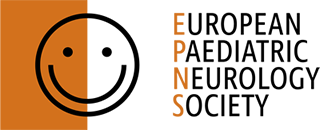The concept of the EPNS Visiting Teacher initiative: A volunteer professor / senior/ distinguished member of the EPNS, who is a recognised expert in a certain field, visits a nominated host centre in a country in Europe which is classified by the World Bank per capita income group 1, 2 or 3 for a short stay of intense teaching. This should be a new collaboration, and the scheme does not apply to programmes which have already been established. Travel and stay will be supported by EPNS. It may be considered that these visits will take place annually thereafter, if the first visit proves to be a success. Future visits will not be funded by the EPNS, and the local centre should establish a sustainable source of funding for the future.
The EPNS is delighted to announce 2 Visiting Teacher Awards for 2020:
Kazakhstan: Professor Lieven Lagae from Belgium will be visiting Almaty City Children’s Hospital, Kazakhstan
POSTPONED UNTIL 2021
Objective: Cognitive impairment associated with childhood-onset epilepsy is an important consequence in the developing brain owing to its negative effects on neuro-developmental and social outcomes.We have problems diagnosing Cognitive impairment in patients with epilepsy. For that reason we want to invite Professor Lieven Lagae to share knowledge about new treatment in childhood epilepsy , cognitive impairment in patients with epilepsy and clinical features epilepsy in neuro-metabolic diseases. We hope after the professor’s visit, we can cooperate with him, and will consult in some cases.
Professor Marxhan Lepsova from Kazakhstan
Poland: Professor Ángeles Garcia Cazorla fromSpain will be visiting Regional Specialized Children’s Hospital in Olsztyn, Poland
POSTPONED UNTIL 2021
Objective: aim to familiarize participants with:
- the latest functional approach to neurogenetic disorders in children – “cellular neurometabolism”
- a new concept of “synaptic metabolism” introduced by Prof. Angeles Garcia-Cazorla and her team
- the latest methods of diagnosis and treatment of neurotransmission disorders in children.
- The Host Hospital expects following benefits from the visit of Prof. Angeles Garcia-Cazorla:
- significant extension of participants’ knowledge in the field of primary and secondary neurotransmission disorders, a new functional approach to neurogenetic disorders, which could be used in everyday clinical practice
- improvement and extension of the scope of application of the latest diagnostic and therapeutic techniques in patients with neurotransmission disorders
- substantive support for the new concept of qualifying rare neurogenetic diseases introduced in the Host Hospital. The above qualification is based on the type of metabolic pathway or subcellular component that has been damaged by the mutation
- establishing further diagnostic, clinical, educational and scientific cooperation between centers
Dr Malgorzata Pawlowicz from Poland
